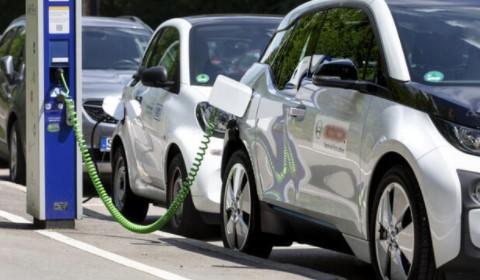California EV Mandate Could “Lead To Disaster” For State’s Already Fragile Electric Grid
Tyler Durden
Mon, 09/28/2020 – 18:40
Now that genius California lawmakers have mandated that all cars in the state must be electric by 2035, it seems like a good time to ask what, exactly, this is going to do to the state’s already fragile power grid.
In what will likely come as a surprise to lawmakers who we can almost guarantee didn’t think about this in advance, it turns out that electrifying all of the state’s vehicles could be “an immense burden” on the state’s grid, according to Bloomberg.
In fact, this past week’s executive order could drive up power demands in the state by as much as 9.5% over the next 10 years and 25% by 2035. This could be a “nightmare” scenario for a state where power is often so tight that rolling blackouts are ordered to prevent the system from collapsing during heat waves.
Additionally, if everyone were to plug in their vehicles at the same time, at night, the problem could be concentrated and even worse.
Erica Bowman, director of resource and environmental planning and strategy at utility Southern California Edison said: “It could go either way. It really depends on planning.”
What planning means is the idea that people would have to stagger when and how they plug in their vehicles for charging, taking into account when the state’s solar energy kicks in and when wind power peaks. Ah, yes, what a wonderful quality of life California offers, where you’ll soon have to ask permission to plug in your car just to get from point A to point B.
Everyone plugging their car in at 6PM after work could “lead to disaster”, according to the report. It’s the same time everyone also decides to turn on their air conditioning, stoves and televisions. At the same time, solar power plunges around sunset, forcing gas plants to pick up the slack. If gas plants are down or there’s no imports available, you wind up with a rolling blackout scenario, like the state had last month.
Jules Kortenhorst, chief executive officer of the Rocky Mountain Institute, said cars will have to “talk to the grid” to figure out when the best time to charge is: “The car will talk to the grid. ‘It’s 6 pm. Wait 15 minutes, because I’m crunched a bit.’ You won’t spend a second thinking about it.”
Californians bought about 1.9 million cars and light duty trucks last year. The state will simply need more power if it mandates that they are all EVs going forward. It will also need to deploy charging stations much faster than it has in the past.
Pedro Pizzaro of Edison International concluded: “It’s not doable a year from now, but it is doable a decade from now. And that gives society time to deploy infrastructure for chargers and get consumers comfortable.”
And California citizens, already leaving the state in droves due to rising taxes, will be on the hook to pay for it all. But hey, back to saving the planet at all costs!


